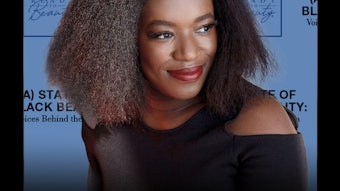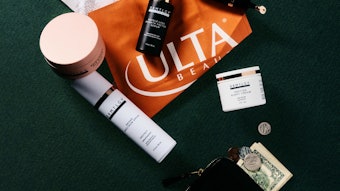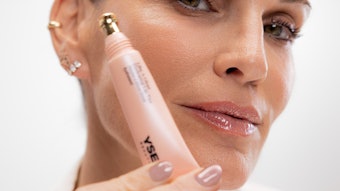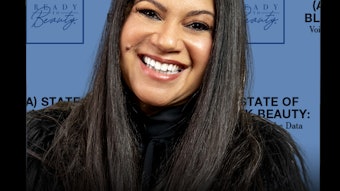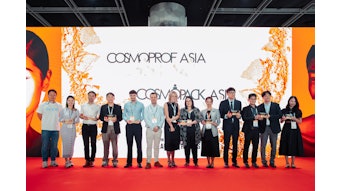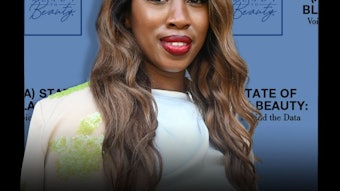- Nostalgic brands hold a key asset: recognition.
- There is an impetus for brands to develop an ever-green personality and a relevant dialogue with consumers that evolves according to economic ups and downs.
- To reach new generations of consumers, the common thread for nostalgic brands will be traditional values.
Every brand faces a universal challenge: how to connect with consumers in a meaningful way. For Pert Plus and Sure, the objective was the same in that both brands maintained a considerable level of consumer loyalty but had fallen off the advertising landscape. Madison Avenue Consortium was charged to revive these brands by reconnecting them with lapsed users to elevate brand relevancy in a cluttered category.
After having virtually no advertising support in several years, the task at hand involved creating fresh, relatable ad campaigns that underscored each brand’s value. Both campaigns set to link each brand directly with its benefits, by re-establishing brand personalities for products that offer effective, no-nonsense results for busy people. The agency was able to capitalize on reviving these brands in a downturning economy by playing up the “nostalgic” aspect of Pert Plus and Sure in order to engage today’s consumers—who were young when these products were in their heyday. These nostalgic brands hold a key asset: recognition.
Bringing back the Plus in Pert Plus
Pert Plus, which launched in 1987, is among the pioneers in 2-in-1 shampoo and conditioners, and enjoyed great success as a dominant hair care brand in the mid 1990s. While the brand had virtually no advertising support for five years, Pert Plus maintained high brand awareness numbers with a strong, loyal consumer following.
Today, the hair care category is an unlevel playing field with an explosion of product lines that answer every hair need—for different hair types (dry, frizzy, oily), hair colors (brunette, blonde, red), genders and ages (anti-aging). Within the 2-in-1 category, existing brands have since introduced 2-in-1 lines (notably Pantene) that widen the breadth of the product offerings, creating an endless number of options for hair care consumers. A communications platform was developed to reconnect lapsed users who once grew up with the Pert Plus brand in their households, while also introducing new users to the brand. In a category that speaks mostly to women, the agency seized the opportunity to talk to families about a trusted (affordable) and effective hair care brand in a fun, modern way by positioning dad as the hero.
Research proved women and men alike were surprised and excited to see a father (a man!) at the center of attention in a hair care campaign. The campaign features dad as hero of a family of five—signaling a trend in today’s larger family. These families are busy, active and close-knit. While dad is prominently featured, mom still plays a critical role for the brand. She is the primary shopper who is looking for a trusted brand that’s affordable and effective that also leaves her family’s hair looking great. This is, after all, because a family’s appearance is a reflection on mom, and moms take great pride in their brand selection decisions.
The Pert Plus campaign “Get Hair That’s All PLUS and No Fuss” emphasizes the brand positioning, delivering a look that’s quick and easy to achieve for all family members. “We’re not going to convince someone who is, for lack of a better descriptor, ‘hair-involved,’ that a 2-in-1 is going to work for them,” says Rick Cutler, director for marketing, Idelle Labs, Ltd—a division of Helen of Troy, which acquired the Pert Plus and Sure brands in 2010.
To note, 70% of consumers describe their hair as “normal.” While often times it’s taboo to emphasize multiple benefits in a hair care campaign, this campaign took a creative, unexpected approach by playing off of the product’s “plus” benefits. “Plus” leverages a double meaning—referring to the name of the brand and the fact that it’s a 2-in1 product.
Sure—Invincible, Again
Sure Anti-Perspirant and Deodorant launched in 1973, and became one of the best-selling brands in the antiperspirant-deodorant (AP/Deo) market. As a unisex brand, Sure gained the trust and following of both men and women as an efficacious and reliable brand. Recent research confirmed that Sure continues to hold strong brand equity and loyalty with men and women, despite limited brand support in the past 10 years.
Sure’s most memorable campaign, “Raise Your Hand If You’re Sure,” was fitting for the times (1980’s U.S. patriotism). However, today’s American consumers are feeling differently—they are more uncertain and not terribly confident with the state of country. The communication goal aimed to create a witty, confident, everyday campaign that was accessible and relevant for today’s men and women—so memorable that it played back into consumer’s consideration set, again.
The result: a super-hero icon. Developing a campaign titled “Be Superprotected” elevated and empowered consumers to feel “invincible throughout your day,” an uplifting and simply refreshing notion in a category filled with chest-pounding claims and fashionable scent stories. This messaging better speaks to the Sure consumer, who prefers non-scented AP/Deos that are long-lasting and protect against odor—period.
“Sure needed a smart, visual style that was as hardworking as it was fun and engaging,” explains Rachel Leibson, creative director, Madison Avenue Consortium. Creating a whimsical idea for Sure was essential in developing a personality for this trusted and efficacious brand.
The “Be 100% Sure” tagline was developed to underscore the brand name while evoking the confidence men and women seek in an AP/Deo. The campaign elevated the brand while “turning the functional benefit of sureness/confidence into an emphatic, more actionable and emotional benefit,” says Claudia Santos, copywriter, Madison Avenue Consortium.
Despite that fact that the AP/Deo category continues to develop various product line extensions with claims such as “clinical protection” and “natural ingredients,” there will always be limitations to what brands can actually claim because many AP/Deo products (those with certain active ingredients) are regulated by the U.S. Food and Drug Administration. To that end, there is even more of an impetus for brands to develop an ever-green brand personality and a relevant dialogue with consumers that evolves according to economic ups and downs.
As more nostalgic brands (Prell and St. Ives, for example) resurface in hopes of reconnecting with lapsed users, a new challenge evolves for brands: How will nostalgic, established brands successfully connect with the new, savvy millennials cohort (consumers aged 18–24)? According to a study called “Social Media and Young Adults,” conducted by Pew Research Center’s Internet & American Life Project, Feb. 3, 2010, the millennials were raised at the most child-centric time in collective history. They’ve been showered with attention and were raised with high expectations from their parents. The millennials display a great deal of self-confidence to the point of appearing cocky. Not to mention they created and mastered the “Facebook nation.” Yet the common thread for nostalgic brands will be traditional values. This cohort values family and relationships; much like the current consumers who grew up using these brands. This is something to consider as master branding campaigns are developed.
Miriam Quart is president and founder of Madison Avenue Consortium, a virtual advertising and marketing agency that specializes in creating customized marketing communications and advertising campaigns. She has more than 15 years of executive experience working with beauty, consumer electronics, airline, financial services and cable television brands. The agency’s virtual model is designed to offer quality results with quicker turnaround at lower cost than the traditional agency model. www.maconsortium.com;[email protected]; 1-347-489-7449.
